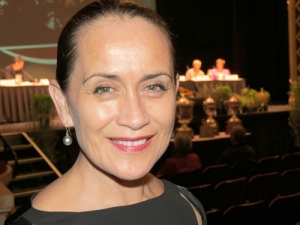New Zealand is dismal at telling its story to consumers in international markets and needs to emphasise the unique Maori dimension, says the Merino NZ chief executive and boot-camp leader John Brackenridge.
He says NZ is poor at spending time in markets gaining empathy and understanding consumers; this requires special skills, which we lack as a nation.
The 'clean green image' story is not unique to NZ; while we have a great environment, other countries can also claim this.
"But we have our Maori culture and if you rake in things such as kaitiakitanga (guardianship), coupled with a strong Maori economy, this is something that nobody else has," he told Rural News. "We have an indigenous people who have fantastic assets and many of them are doing a great job in managing those assets."
Maori are hugely underrated in NZ, superficially and at a much deeper level, he says. The principles of manaakitanga (hospitality) and kaitiakitanga need to be recognised, embraced and entwined into a true partnership whose value is recognised worldwide.
He cites an example from recent bootcamp sessions at Stanford University.
"The appreciation of this was evident when a professor finished a session and the group sang a waiata. How many classes do they teach where the class stands up and provides song?" he asks. "These people teach hundreds of classes and who do they remember? They remember the people from Aotearoa NZ. They remember the waitata and they remember the collectivism that was there and our point of difference.
Meanwhile, the chair of the Federation of Maori Authorities (FoMA) says Maori are talking with a number of primary sector exporters about how the 'Maori story' can be used better to gain a premium position in overseas markets for Maori and other NZ exporters.
Traci Houpapa says they are getting a lot of support from the red meat, dairy and kiwifruit sectors about how Maori culture can be interwoven into stories to explain NZ's unique brand.
She says a lot of conversations now going on will bear fruit in coming years.
"Major questions are, how do we get a clear line of sight to our markets and customers and how do we ride out the commodity cycles? Also, how do we secure supply contracts as Maori exporters?



















